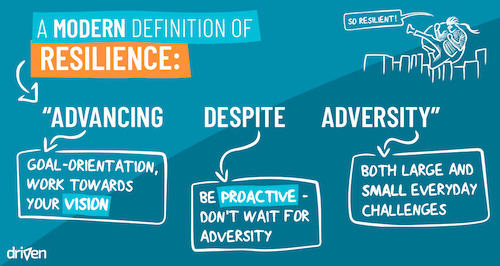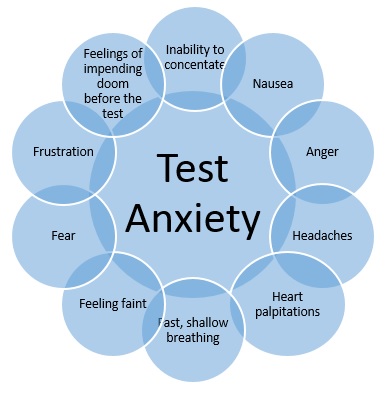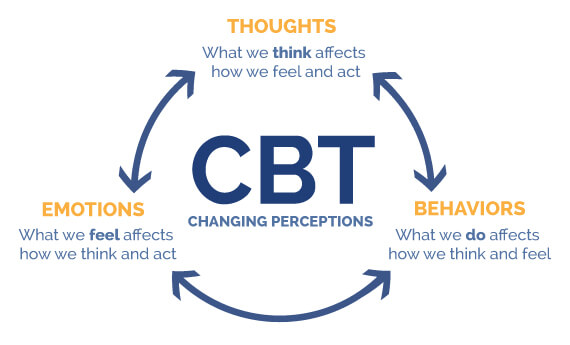The belief that every problem is figure outable is a mindset associated with resilience. Resilient individuals possess a strong conviction that challenges and difficulties can be overcome through determination, creativity, and problem-solving skills. This mindset encourages a proactive approach to problem-solving and empowers individuals to tackle obstacles head-on.
When someone firmly believes that every problem is figure outable, they are more likely to approach difficulties with optimism and perseverance. Rather than viewing setbacks as insurmountable barriers, resilient individuals see them as opportunities for growth and learning.
When they face various challenges in their lives, they say to themselves; this is a skill I haven’t learnt yet, everything is figure outable.
e.g. some of the skills including how to be assertive, how to tolerate discomfort, how to tolerate uncomfortable emotion.
They put efforts to learn skills which they lack to overcome challenges in life.
When they keep repeating the same negative patterns in their lives, they say this is the skill I haven’t learnt yet. They do their research and say how can I learn this particular skill ?
Even in the face of hardship, they keep an optimistic attitude and actively seek answers.
This belief in the figure-outability of problems also encourages resourcefulness. Resilient people are willing to explore different strategies, seek support and guidance from others, and adapt their approach as needed.
They recognise that answers may not always come easy or quickly, but they stay focused on finding a solution.
Let’s learn more about below points in depth ( tap / click to jump to the respective topic )
1. Understanding Fragile Individuals: Traits and Coping Strategies
2. Numerous researches done Across Globe About Resilience and what did they find ?
3. How do Resilient people resolve their conflict with their spouse ?
4. How do Resilient people resolve their conflict with their kids ?
5. How do Resilient people resolve their conflict with their co-workers ?
6. Conclusion
Understanding Fragile Individuals: Traits and Coping Strategies
Fragile individuals face unique challenges that can impact their well-being and ability to navigate life’s hurdles. Characterized by a heightened sensitivity to stress and adversity, fragile individuals may struggle to cope with setbacks and experience difficulty bouncing back from hardships.
The fragility mindset often involves a fear of failure and a tendency to avoid taking risks, leading to missed opportunities for growth and personal development. These individuals may be more susceptible to negative self-talk, self-doubt, and feelings of overwhelm when confronted with challenges.
Building resilience is a crucial step for those with fragile tendencies. By developing coping mechanisms, fostering self-compassion, and cultivating a positive support system, fragile individuals can gradually strengthen their ability to handle stressors and setbacks. Seeking professional guidance and engaging in self-reflection can also contribute to personal growth and resilience-building.
Numerous researches done Across Globe About Resilience and what did they find ?
1. A study conducted by the American Psychological Association found that individuals with a resilient mindset tend to have better mental health outcomes, including lower levels of stress and anxiety.
2. According to research published in the Journal of Personality and Social Psychology, resilient individuals demonstrate higher levels of problem-solving skills and are more likely to approach challenges with a proactive mindset.
3. A survey conducted by the National Bureau of Economic Research in the United States revealed that individuals with a resilient mindset tend to have higher levels of job satisfaction and are more likely to persevere in the face of work-related difficulties.
4. The American Psychological Association suggests that fostering a problem-solving mindset is beneficial for both personal and professional development, as it enhances adaptability, creativity, and the ability to overcome obstacles effectively.
5. Research conducted at Stanford University indicates that individuals who believe in the figure-outability of problems are more likely to exhibit higher levels of resilience and overall well-being.
6. A global study conducted by the World Health Organization (WHO) involving multiple countries found that individuals with a resilient mindset tend to have better mental well-being and lower levels of psychological distress.
7. Research published in the Journal of Applied Psychology examined data from various countries and revealed that individuals who possess problem-solving skills and a proactive mindset are more likely to experience higher job satisfaction and performance.
8. A study conducted by researchers at the University of Manchester, UK, analyzed data from multiple countries and found that individuals with a resilient mindset are better able to cope with stressful life events and demonstrate higher levels of psychological resilience.
9. Research conducted by the University of Otago, New Zealand, revealed that resilient individuals tend to have better physical health outcomes, including lower rates of chronic diseases and better recovery from illness or injury.
10. A cross-cultural study published in the Journal of Personality and Social Psychology examined data from various countries and found that individuals who possess a problem-solving mindset are more likely to experience greater life satisfaction and overall happiness.
These findings highlight the universal significance of resilience and a problem-solving mindset in promoting well-being, adaptability, and success across different cultures and regions of the world. It’s important to consult specific studies and the latest research for more in-depth and up-to-date information on the global impact of resilience and problem-solving skills.
How do Resilient people resolve their conflict with their spouse ?
Resilient individuals approach conflict resolution in their relationships, including with their spouse, with a proactive and constructive mindset. Here are some key ways in which resilient people typically resolve conflicts with their spouse:
Effective Communication:
Resilient individuals prioritize open and honest communication. They actively listen to their spouse’s perspective, express their own thoughts and feelings clearly, and strive to understand each other’s viewpoints. By fostering effective communication, resilient people create a safe and respectful space for resolving conflicts.
Emotional Regulation:
Resilient individuals are skilled at managing their emotions during conflicts. They recognize the importance of staying calm and composed, even when faced with heated discussions. By controlling their emotions, they can approach conflicts with a clear mind and make rational decisions.
Seeking Understanding and Compromise:
Resilient people are willing to see the situation from their spouse’s point of view. They aim to understand the underlying needs and concerns of both parties involved in the conflict. Resilient individuals are open to finding common ground and reaching compromises that consider the well-being and satisfaction of both themselves and their spouse.
Problem-Solving Mindset:
Resilient individuals approach conflicts with a problem-solving mindset. They view conflicts as opportunities for growth and improvement in their relationship. Instead of dwelling on blame or focusing on past mistakes, they actively seek solutions and work collaboratively with their spouse to find mutually beneficial resolutions.
Flexibility and Adaptability:
Resilient individuals understand that relationships require flexibility and adaptability. They are willing to adjust their expectations, make compromises, and embrace change when necessary. By being open to new approaches and ideas, resilient people foster a healthier and more resilient relationship dynamic.
Seeking Support and Professional Help:
Resilient individuals are not afraid to seek support and guidance when needed. They may engage in constructive conversations with trusted friends or family members, or they may choose to seek professional help from couples’ therapists or marriage counselors. By proactively seeking assistance, resilient people demonstrate their commitment to resolving conflicts and strengthening their relationship.
How do Resilient people resolve their conflict with their kids ?
Resilient individuals approach conflicts with their children in a mindful and constructive manner. Here are some ways in which resilient people typically resolve conflicts with their kids:
Active Listening:
Resilient parents understand the importance of active listening. They take the time to listen attentively to their child’s concerns, feelings, and perspectives during conflicts. By validating their child’s emotions and actively seeking to understand their point of view, resilient parents create a safe space for resolution.
Empathy and Understanding:
Resilient individuals empathize with their children’s experiences and emotions. They put themselves in their child’s shoes, considering their developmental stage and individual needs. This understanding allows them to approach conflicts with compassion and find resolutions that address their child’s underlying concerns.
Effective Communication:
Resilient parents prioritize open and clear communication. They express their own thoughts and expectations in a calm and respectful manner. They also teach their children healthy communication skills, encouraging them to express their feelings and needs constructively.
Setting Boundaries and Consistency:
Resilient parents establish clear boundaries and expectations for behavior. They create a structured and consistent environment that helps prevent conflicts from arising in the first place. By setting appropriate limits and consistently reinforcing them, resilient parents provide a sense of security and promote positive behaviors.
Teaching Problem-Solving Skills:
Resilient individuals empower their children with problem-solving skills. They encourage their kids to identify solutions and alternatives during conflicts, fostering independence and critical thinking. By involving children in the process of finding resolutions, resilient parents help develop their child’s problem-solving abilities.
Teaching Emotional Regulation:
Resilient parents teach their children emotional regulation skills. They guide their kids in managing their emotions during conflicts, helping them understand and express their feelings in healthy ways. By modeling self-regulation techniques and providing emotional support, resilient parents promote emotional intelligence and conflict resolution skills.
Offering Support and Encouragement:
Resilient individuals offer support and encouragement to their children throughout conflict resolution. They provide guidance and reassurance, helping their child navigate difficult emotions and develop resilience. By demonstrating unwavering support, resilient parents foster a strong parent-child bond and promote positive conflict resolution.
How do Resilient people resolve their conflict with their co-workers ?
Resilient individuals navigate conflicts with their co-workers in a constructive and collaborative manner. Here are some ways in which resilient people typically resolve conflicts with their co-workers:
Active Listening:
Resilient individuals actively listen to their co-workers during conflicts. They strive to understand their perspectives, concerns, and underlying motivations. By attentively listening, they demonstrate respect and create an environment for effective resolution.
Effective Communication:
Resilient individuals engage in clear and open communication with their co-workers. They express their own thoughts, feelings, and expectations in a calm and assertive manner. By fostering transparent communication, they promote understanding and facilitate finding common ground.
Empathy and Understanding:
Resilient individuals practice empathy towards their co-workers. They make an effort to understand their colleagues’ experiences, challenges, and viewpoints. This understanding helps create a sense of mutual respect and lays the foundation for resolving conflicts collaboratively.
Finding Common Ground:
Resilient individuals focus on areas of shared interest or common goals with their co-workers. They seek opportunities for mutual benefit and identify common objectives. By emphasizing shared interests, they foster a cooperative atmosphere that facilitates conflict resolution.
Problem-Solving Mindset:
Resilient individuals approach conflicts with a problem-solving mindset. They view conflicts as challenges to overcome together and actively seek solutions. They encourage brainstorming, alternative perspectives, and exploring creative options to find resolutions that address everyone’s needs.
Emotional Intelligence:
Resilient individuals possess emotional intelligence and apply it during conflict resolution. They manage their own emotions and reactions, remaining calm and composed. They also consider the emotions of their co-workers, demonstrating empathy and offering support when needed.
Seeking Mediation or Support:
Resilient individuals are open to seeking mediation or support from supervisors or HR professionals when necessary. They recognize the value of neutral third-party intervention to facilitate fair and impartial conflict resolution. They approach mediation with a willingness to find mutually agreeable solutions.
Learning and Growth:
Resilient individuals view conflicts as opportunities for learning and personal growth. They reflect on their own actions and behaviors, seeking areas for self-improvement. They also encourage open feedback and constructive criticism from their co-workers to foster a culture of continuous improvement.
Conclusion
The power of resilience through small daily habits that can transform your life.
You may unleash your real potential and handle life’s obstacles with steady strength by adopting practises such as gratitude, mindfulness, social connections, self-care, goal-setting, problem-solving skills, a growth mindset, and self-compassion.
Research-backed and time-tested, these habits have been proven to reduce stress, enhance emotional intelligence, and foster a proactive mindset. Each habit contributes to building a resilient foundation that empowers you to overcome adversity and thrive.
Tap into the transformative impact of these small but mighty changes in your daily routine. With resilience as your ally, you’ll embrace challenges as opportunities for growth, unlock your full potential, and create a life filled with purpose and fulfillment.
Take charge of your resilience journey today. Embrace these habits and witness the profound impact they can have on your life. Unleash your inner strength, embrace the power of resilience, and seize every moment with confidence and determination.




